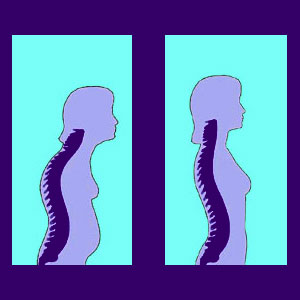
Back pain clinical studies are always of interest to anyone with a chronic back or spine problem. New treatment options are always being developed and refined in the back pain industry. Clinical studies are a way of determining what experiences a patient might expect from a particular therapy option.
Patients are constantly recruited for new clinical studies and many are thrilled to participate, since their back pain has resisted all previous attempts at successful treatment. Of course it must be noted from the get-go that clinical research projects are geared towards testing unproven and sometimes dangerous therapies. Patients must understand what they may risk by participating. Additionally, when viewing results of clinical studies, it must be understood that the conclusions may not be objective and may even have been pre-arranged to fit the marketing goals of the sponsoring company.
Sounds scandalous?
Sure, just read the headlines and see how many studies turn out to be skewed, particularly after follow-up research by independent organizations finds hazards associated with the product or treatment and litigation ensues.
What are Back Pain Clinical Studies?
Clinical studies are research and statistical collection projects used to develop and improve back pain treatments. There are studies conducted on a wide variety of therapy modalities including: back pain drugs, spinal surgery, orthotic equipment and back pain relief products, spinal decompression, complementary therapies and a host of others.
Patients are recruited from medical offices, online and through other programs, to participate in exchange for free or low cost medical care.
Clinical research studies are a crucial facet of expanding medical knowledge and a great way to fine tune a therapy before it is marketed for general consumption.
Benefits of Back Pain Clinical Studies
Patients have several benefits available to them for their participation in clinical studies. First, they have a new hope for finding a cure for their painful conditions. Many patients have suffered with unresolved back pain for many years. Any opportunity to heal the condition is a welcomed chance that many patients are willing to take.
Second, most clinical studies offer free care and might even provide financial compensation or travel-related expenses in exchange for participation. This is very important to patients who have limited health care options due to financial restrictions.
Finally, patients know that they are making a difference in developing new technologies which might revolutionize the treatment industry. They are also privy to experience the possible benefits of these new treatments long before the general public.
Problems with Back Pain Clinical Studies
Back pain clinical studies are almost always conducted by the manufacturer or developer of the proposed treatment. Sometimes the study is set up in a manner which will give inaccurate results to support the effectiveness of the proposed treatment. All companies want their products and services to rate well in clinical studies and some will do whatever it takes to weigh the odds in their favor.
Patients must also be cautious, since many of these products and procedures are not perfected. There may be health risks and long-term complications from experimenting with unproven treatments. Patients are often asked to sign a waiver limiting their legal recourse if some unexpected and unfortunate health concerns develop.
Patients might also be given a control group or placebo treatment. They might endure a loss of time and a built up expectation of a cure while only receiving a literal or figurative sugar pill.
Participating in Back Pain Clinical Studies
You must weigh both the positives and the potential negatives before agreeing to become part of a back pain clinical study research project. Depending on your pain conditions, as well as your life circumstances, a clinical study might just be a new found hope for pain relief.
Make sure to understand all the risks and benefits before commencing the study. Talk to the coordinators and make sure that the treatment will be appropriate for your condition. If you do decide to participate, know that you will be making a difference in helping not only yourself, but also possibly creating a new therapy which might aid millions of other suffering patients just like you.
Please also remember that when using a particular study as a research source, be sure to investigate the objectivity of the content before investing too much trust into it. I can not tell you how many recants are issued each and every year by the researchers involved in these studies and the companies who pay them.
Be careful out there.
Back Pain > Chronic Lumbar Back Pain > Back Pain Clinical Studies





